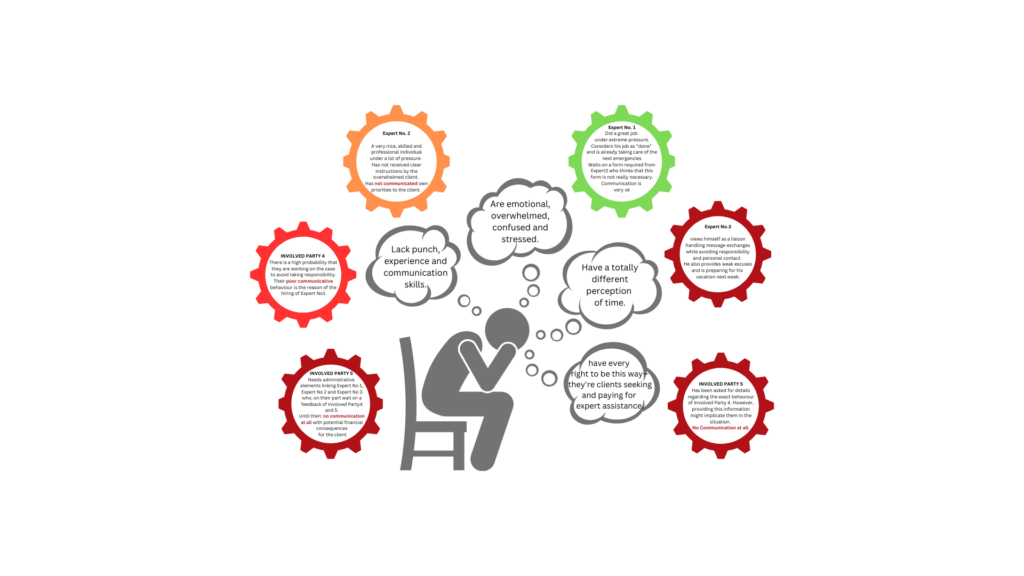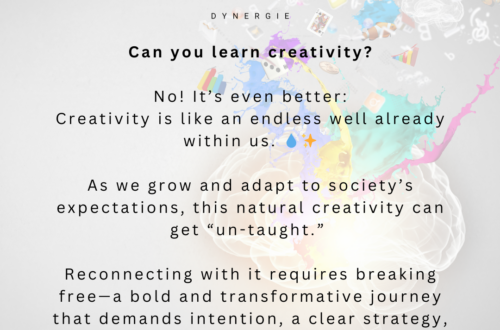
Please take over!
He felt trapped—surrounded by experts engrossed in their own tasks and priorities, most likely under pressure themselves and, of course, still completely disconnected and probably not fully aware about what was expected of them.
Without hesitation, I agreed to step in, driven by two core values:
- A passion for helping others, no matter the problem, as long as it’s within my ability.
- My curiosity and the variety this task promised.
A fresh view
Through my workshops, and coaching activities, I normally assist individuals and companies in refining their communication, creativity, and sales skills.
I’ve now taken on a role that places me at the heart of the consequences of these skill gaps, whether individually or at their intersections.
Why this matters
Effective communication is essential—everywhere, all the time. In our personal lives, our professional lives, and at their intersections.
In addition to a solid foundation of general knowledge and education, it relies on:
- Empathy
- Nonverbal cues: Body language, facial expressions, and appearance
- Self-confidence that is not driven by ego
- Specific techniques and strategies
This skill set conveys confidence and respect and is rarely taught in schools. Moreover, communication evolves: 2024 is vastly different from 1990, when I started my career, before the internet and email.
Thus, many enter the job market unaware of how crucial this evolving knowledge is, both individually and at the intersections.
So many missed opportunities! So much frustration.
Integrating soft and hard skills boosts success
Research shows that communication skills, often labeled “soft skills,” are crucial for workplace success and can even outweigh technical expertise.
In today’s fast-evolving work environment, strong communication is vital for both individual and organizational success. While hard skills are necessary for specific tasks, soft skills like communication enhance teamwork, leadership, sales and complex problem-solving, improving the overall effectiveness.
Studies from RMIT University and the Journal of Intelligence highlight that soft skills improve job performance, career growth, and job satisfaction.
Consequently, employers increasingly prioritize them over technical skills.

A moment of fun?
Listen to what Taylor Sheridan had Sylvester Stallone say about college in the comedy Tulsa King.
Please don’t get me wrong—this reel is just for a laugh. I deeply believe in the value of education. I just think it’s essential to complement it with our own efforts in reading, thoughtful selection, and lifelong learning—especially from a practical perspective.
Our situation at a glance

The goal: Smooth out this situation and ensure everything works seamlessly, freeing clients from extra effort so they can focus on themselves.
Simplifying the process
To assemble the communication puzzle in this case, I:
- Created a detailed timeline and documented all communications.
- Centralized communication channels for maximum transparency.
- Clarified any misinterpreted client messages.
- Reminded experts of their duties.
- Defined responsibilities and reorganized the process.
- Organized meetings for effective engagement.
- Connected professionals as needed.
- Assisted with strategic appointments and document preparation.
- Provided detailed reports to keep clients focused.
- Assessed progress and adjusted actions accordingly.
In less than half a day, communication with services, individuals, experts, and stakeholders had already improved significantly, saving the client time, energy, and likely a substantial amount of money.
And I won’t stop, until we are done.
“This is the first night I’ve slept in two weeks.”
To me, this feedback is worth more than the fees the client paid for the service.




